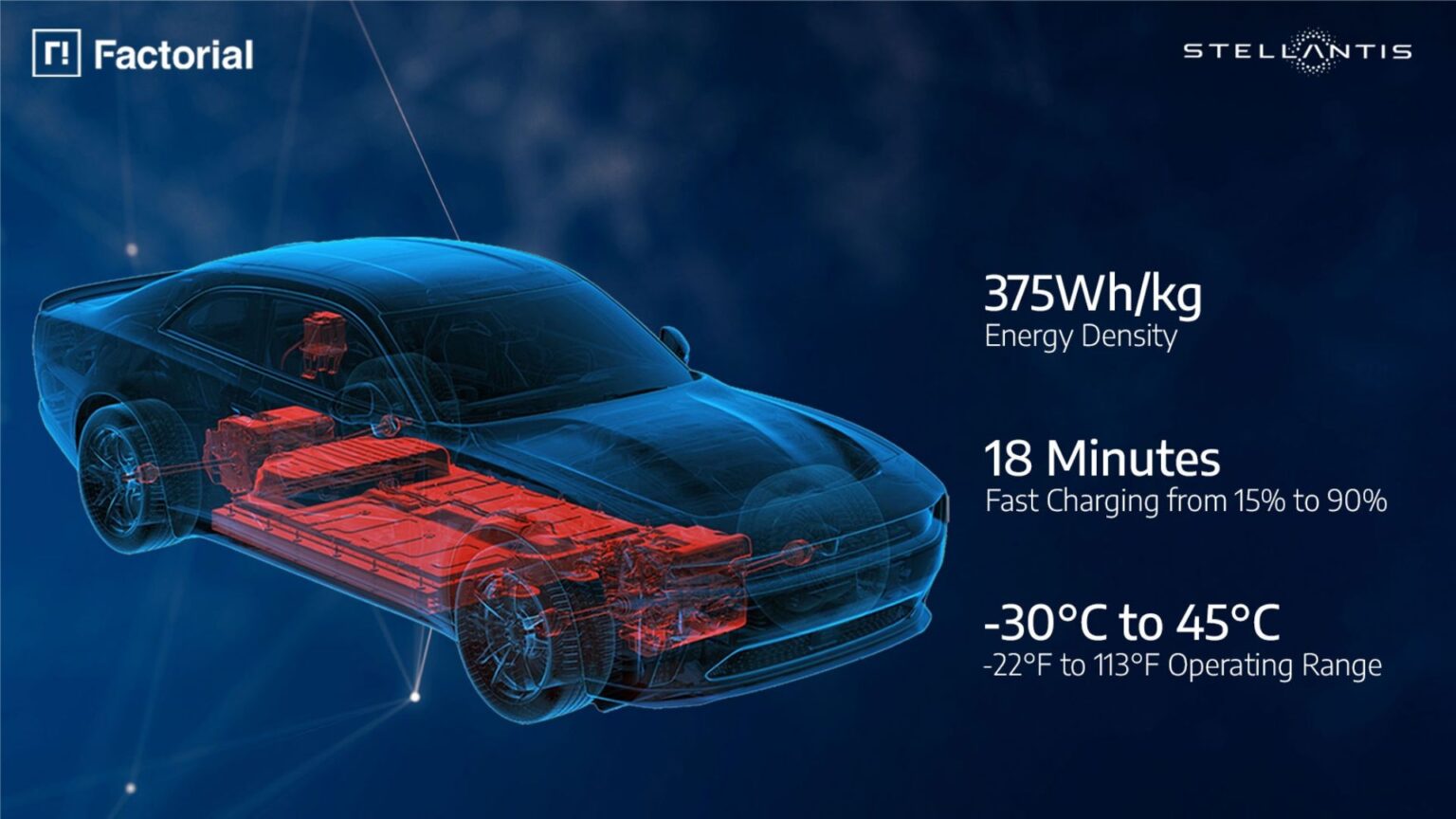Solid-state batteries promise to revolutionize the electric vehicle world. These energy-storage systems offer myriad benefits over the lithium-ion batteries currently available. Solid-state packs should charge much faster, last far longer, provide greatly enhanced safety, and, perhaps most importantly, they also have far greater energy density, for longer range and reduced mass. Moving the world one step closer to a solid-state reality, Stellantis and Factorial Energy just announced the successful validation of new automotive-sized battery cells.
A Validation Milestone
The FEST design, shorthand for Factorial Electrolyte System Technology solid-state battery, makes some big promises. This setup offers an energy density of 375 Watt-hours per kilogram, a big step forward. Additionally, this design can supposedly DC fast charge from a 15 percent state of charge to 90 percent in a mere 18 minutes. And thanks to advanced engineering and “AI-driven tools,” these cells can also operate in a huge range of temperatures, from -22 degrees F to 113 degrees F.
“This breakthrough puts us at the forefront of the solid-state revolution, but we are not stopping there. We continue working together to push the boundaries and deliver even more advanced solutions, bringing us closer to lighter, more efficient batteries that reduce costs for our customers. Reaching this level of performance reflects the strengths of our collaboration with Factorial,” the engineering executive also noted.”
– Ned Curic, Stellantis Chief Engineering And Technology Officer
Similarly, Siyu Huang, CEO of Factorial Energy said, “This achievement with Stellantis is bringing next-generation battery technology from research to reality.” And if the cells these two companies are developing deliver the promised performance and longevity at an affordable price, Stellantis could leapfrog competitors in the EV space.
“Battery development is about compromise,” Huang explained. “While optimizing one feature is simple, balancing high energy density, cycle life, fast charging, and safety in an automotive-sized battery with OEM validation is a breakthrough.”
Together, Stellantis And Factorial Energy Could Beat Rivals
To help build the future, back in 2021, Stellantis invested some $75 million in Factorial Energy. Working together, the two companies are aiming to have solid-state batteries in demonstration vehicles by 2026. This will also be a huge milestone, and it could put Stellantis roughly in line with Toyota, one of myriad other automakers, supplier companies, and academic institutions that are researching solid-state energy storage. The gigantic Japanese manufacturer is aiming to commercialize this technology sometime in 2027 or 2028. But as with everything that’s on the cutting edge, the timing is always a little up in the air.
Regardless of who gets there first, the solid-state battery promises to transform the electric vehicle world. With far greater energy density, faster charging, and dramatically improved safety, these batteries are a revolution in the making.
Read the full article here


